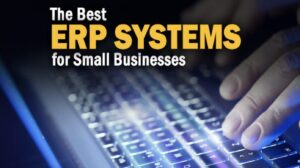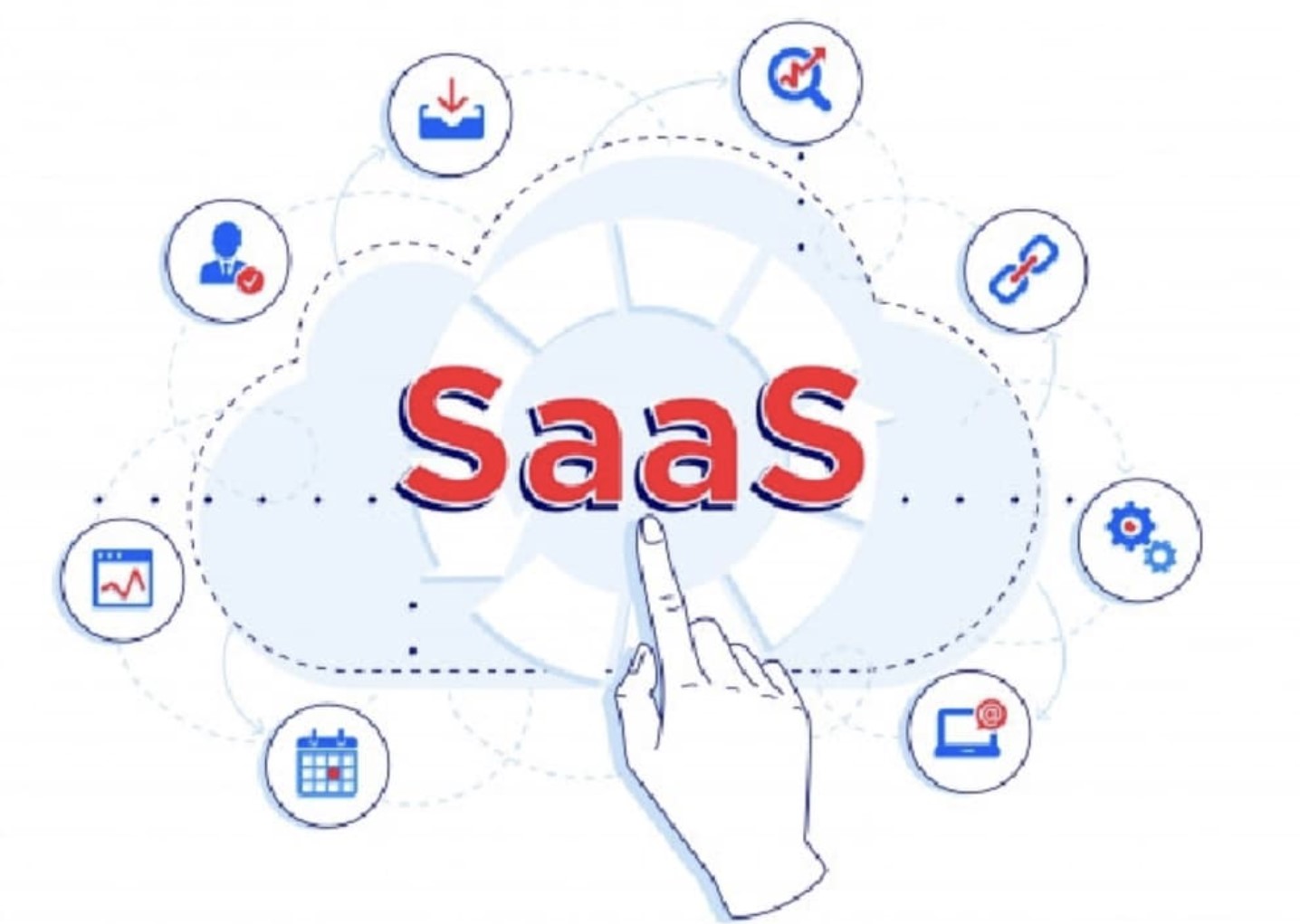Running a small business comes with its own set of challenges, from managing finances to coordinating operations efficiently. In today’s competitive landscape, staying ahead requires leveraging technology that empowers streamlined processes and fosters growth. This is where Small Business ERP (Enterprise Resource Planning) systems come into play, offering a comprehensive solution to manage various aspects of a business seamlessly.

Understanding the Importance of ERP for Small Businesses
Small Business ERP software serves as a centralized platform that integrates core business functions such as accounting, inventory management, human resources, customer relationship management (CRM), and more. Unlike traditional disparate systems, ERP consolidates data and operations into a unified interface, enabling real-time insights and informed decision-making.
Key Features of Small Business ERP Systems
Modern Small Business ERP solutions come equipped with a range of features tailored to the unique needs of small enterprises. These include:
- Inventory Management: Track stock levels, automate reordering processes, and optimize inventory turnover.
- Financial Management: Manage accounts payable/receivable, track expenses, and generate financial reports.
- CRM Integration: Streamline customer interactions, manage leads, and improve sales processes.
- Supply Chain Optimization: Enhance procurement, logistics, and supplier management.
- Analytics and Reporting: Gain actionable insights through customizable dashboards and reports.
- Mobile Accessibility: Access critical business data anytime, anywhere, via mobile devices.
How Small Business ERP Streamlines Operations
One of the primary advantages of Small Business ERP is its ability to streamline operations across departments. By centralizing data and processes, businesses can eliminate duplicate tasks, reduce manual errors, and enhance overall efficiency Small Business ERP (Enterprise Resource Planning) systems play a pivotal role in streamlining operations for small businesses. These systems offer a centralized platform that integrates various business functions, making processes more efficient and enhancing overall productivity. One of the primary ways Small Business ERP streamlines operations is by centralizing data management. Instead of having information scattered across different departments or systems, ERP consolidates everything into a single database. This means employees can access real-time data from any department, eliminating the need for manual data entry or cross-referencing multiple sources.
Cost-Effectiveness of Small Business ERP Solutions
Contrary to common misconceptions, implementing an ERP system doesn’t have to be prohibitively expensive for small businesses. Cloud-based ERP solutions offer flexible pricing models, eliminating the need for hefty upfront investments in hardware and infrastructure Moreover, Small Business ERP automates many repetitive tasks, such as data entry, inventory management, and financial reporting. By automating these processes, businesses can save time and reduce the risk of human error. For example, ERP systems can automatically generate invoices, update inventory levels, and reconcile accounts, freeing up employees to focus on more strategic tasks.
Scalability and Growth with Small Business ERP
Another significant benefit of Small Business ERP is its scalability. As businesses expand, ERP systems can easily accommodate growth by adding new users, modules, or functionalities without disrupting operations Another way Small Business ERP streamlines operations is by improving communication and collaboration. With all departments working off the same system, employees can easily share information, collaborate on projects, and track progress in real-time. This fosters a more cohesive and efficient work environment, where everyone is on the same page and working towards common goals.
Customization Options in Small Business ERP
Every business has unique requirements, and Small Business ERP systems recognize this by offering extensive customization options. From customizable workflows to tailored reports, businesses can adapt the ERP solution to suit their specific needs and industry nuances Additionally, Small Business ERP provides valuable insights and analytics that help businesses make informed decisions. By analyzing data trends, identifying bottlenecks, and forecasting future demand, ERP systems enable businesses to optimize their operations and respond quickly to changing market conditions.
Integration Capabilities with Other Business Systems
In today’s interconnected business environment, seamless integration with other software applications is crucial. Small Business ERP solutions offer robust integration capabilities, allowing businesses to connect their ERP system with CRM, e-commerce platforms, payroll software, and more Small Business ERP (Enterprise Resource Planning) systems offer robust integration capabilities with other business systems, enabling seamless communication and data exchange across different platforms. This integration plays a crucial role in streamlining operations and enhancing overall efficiency for small businesses. One of the key benefits of integrating Small Business ERP with other systems is the ability to eliminate silos and centralize data management. ERP systems can seamlessly integrate with various software applications commonly used by small businesses, such as Customer Relationship Management (CRM) software, e-commerce platforms, accounting software, and inventory management systems. This integration ensures that all relevant data is synchronized and accessible from a single interface, reducing the need for manual data entry and minimizing the risk of errors.
Security Measures in Small Business ERP
With data breaches on the rise, security is a top concern for businesses of all sizes. Small Business ERP vendors prioritize data security by implementing robust encryption protocols, access controls, and regular security updates to safeguard sensitive information Moreover, integration with CRM software allows businesses to streamline their sales and marketing processes. By syncing customer data between the ERP system and the CRM platform, businesses can track leads, manage customer interactions, and personalize marketing campaigns more effectively. This integration enables a seamless flow of information between sales, marketing, and customer service teams, enhancing customer satisfaction and driving revenue growth.
Choosing the Right Small Business ERP Solution
Selecting the right Small Business ERP solution requires careful consideration of factors such as business size, industry requirements, budget constraints, and scalability. It’s essential to research different vendors, request demos, and seek recommendations from trusted sources before making a decision. Additionally, Small Business ERP systems can integrate with e-commerce platforms to automate order processing, inventory management, and fulfillment operations. This integration enables businesses to synchronize product listings, update inventory levels in real-time, and automatically generate invoices and shipping labels. By streamlining the e-commerce process, businesses can improve order accuracy, reduce shipping times, and enhance the overall customer experience.
Implementing Small Business ERP Successfully
The successful implementation of Small Business ERP involves thorough planning, stakeholder buy-in, and comprehensive training for end-users. Businesses should work closely with ERP vendors or consultants to ensure a smooth transition and maximize the benefits of the new system.
Training and Support for Small Business ERP Users
Ongoing training and support are critical for maximizing user adoption and optimizing the use of Small Business ERP. Vendors typically offer training sessions, user manuals, and dedicated support channels to assist businesses throughout their ERP journey. Furthermore, integration with accounting software ensures accurate financial reporting and compliance with regulatory requirements. By syncing financial data between the ERP system and accounting software, businesses can track expenses, manage accounts payable and receivable, and generate financial statements with ease. This integration provides a holistic view of the company’s financial health, enabling better decision-making and strategic planning.
Real-Life Examples of Small Businesses Benefiting from ERP
Numerous small businesses have experienced significant improvements in efficiency, productivity, and profitability after implementing ERP systems. Case studies and success stories serve as testament to the transformative impact of Small Business ERP across various industries.
Future Trends in Small Business ERP
As technology continues to evolve, Small Business ERP systems will evolve along with it. Key trends shaping the future of ERP include AI-driven automation, IoT integration, blockchain for supply chain transparency, and enhanced cybersecurity measures.
Conclusion
In conclusion, Small Business ERP has emerged as a game-changer for small enterprises looking to streamline operations, drive growth, and stay competitive in today’s dynamic market. By investing in the right ERP solution and harnessing its full potential, small businesses can unlock new opportunities for success and sustainability.



